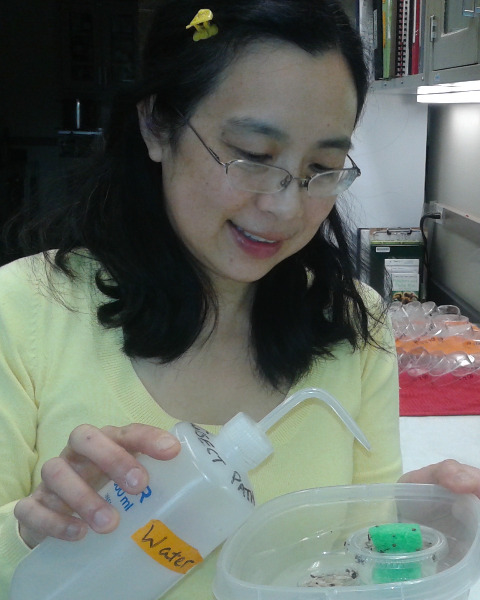PBT
Student Competition 10-Minute Paper
Grad 10-min: PBT, Toxicology, Management
Inner workings of sweet non-toxic control of spotted-wing drosophila (Drosophila suzukii)
On-Demand

Briana Price
USDA-ARS
Corvallis, Oregon
Man-Yeon Choi
USDA-ARS
Corvallis, Oregon
Jana C. Lee
USDA-ARS
Corvallis, Oregon
Presenting Author(s)
Co-Author(s)
Drosophila suzukii (Matsumura) (Diptera: Drosophilidae), commonly referred to as spotted-wing drosophila (SWD), is a major pest in small fruits. Its serrated female ovipositor, high fecundity, wide climate tolerance, and wide host range make this pest a force to be reckoned with. Among non-insecticidal IPM tools, erythritol, a non-nutritive sugar, is known to kill SWD. Previous studies have investigated how consumption of erythritol affects fly mortality, fecundity, and physiological processes. Since Drosophila spp. cannot metabolize erythritol, physiological imbalances such as high osmotic pressure in the hemolymph, cause adult flies to die within three days. Both digestion and absorption occur in the midgut and the control of food intake is closely related to the rate of crop emptying and hemolymph osmotic pressure in insects. Consumption of non-nutritive sugar, sucralose, is not directly toxic to Drosophila spp., but is 600x sweeter than sucrose, thus, it has potential to be used as a phagostimulant. In our study, the sugar content in frass and hemolymph of fed-flies are measured to provide insight on how these non-nutritive sugars, erythritol and sucralose, are metabolized in the fly body. By dissecting the SWD digestive system after consumption, we gain understanding as to where and what genes are responsible for regulating water and metabolic enzymes.


